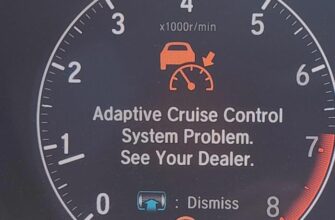It’s one of those moments every driver dreads: something happens to your car – a fender bender, vandalism, or maybe even some nasty weather damage. Your first thought, after checking that everyone is okay, is likely about the damage… and then, quickly, “Oh no, will my insurance go up if I submit a claim?” It’s a completely valid concern, and it often leads to the tricky question: is it even better to not file an insurance claim for minor incidents?
The truth is, filing a claim can lead to an increase in your insurance premium. Insurance companies use your claim history as a key factor in assessing how risky you are to insure. If you’ve filed claims in the past, statistics suggest you might be more likely to file claims in the future. However, it’s not a simple yes or no answer. Several factors influence whether your rate will rise and by how much.
Let’s cut through the confusion and explore the different scenarios and factors that determine the impact of filing on your wallet at renewal time.

What Kinds of Claims Tend to Increase Premiums?
Not all insurance claims are treated equally by insurance companies when it comes to your premium. The type of claim you file plays a big role in the likelihood and amount of a rate increase. Generally speaking, claims related to incidents where you were at fault for damage to another party or their property have the most significant impact.
Claims that fall under liability coverage (covering damage or injury you cause to others) or collision coverage (covering damage to your own vehicle from an accident with another vehicle or object) are often flagged as higher risk, especially if you are found to be primarily responsible for the incident.
Some people wonder, “will my insurance go up if I file a small claim?” While a minor claim might have less impact than a major one costing thousands of dollars, even small payouts can potentially affect your rate, particularly if you have a history of multiple claims, regardless of size. Insurance companies look at the frequency of claims as well as the severity.
On the other hand, claims filed under comprehensive coverage, which covers damage to your vehicle from incidents other than collisions (like theft, vandalism, fire, or hitting an animal), often have less impact on your premium than at-fault collision claims. For instance, if you need to file a claim for a broken windshield after a rock hits it on the highway, this typically falls under comprehensive coverage. While even these types of claims can sometimes influence your rate, the increase is usually less severe compared to an accident where you were at fault. Similarly, damage caused by weather events, like filing a claim for hail damage on your car, which you can sometimes fix yourself using guides on how to fix hail damage, usually falls under comprehensive and may have a different impact than an accident claim.
“After I had a minor fender bender where I was at fault, my insurance premium definitely went up at the next renewal. Mark, 35, it wasn’t a huge accident, but my agent explained that even a small claim when you’re at fault impacts your risk profile.” – A driver experiencing a rate increase after an at-fault claim.
Does Fault Matter? “Will My Insurance Go Up If I’m Not At-Fault?”
This is a common point of confusion. Many people assume that if an accident isn’t their fault, their insurance rate won’t be affected. While being found not at fault is certainly better than being at fault, the answer to “will my insurance go up if I’m not at-fault” isn’t always a guaranteed “no.”
Here’s why:
- State Laws: In some states, insurers are prohibited from raising rates for not-at-fault accidents. In others, they are not.
- Frequency of Claims: Even if you’re not at fault, filing multiple claims (even not-at-fault ones) in a short period could potentially flag you as a higher risk, indicating you might live or drive in an area prone to incidents, or simply have bad luck.
- Insurer Practices: Different insurance companies have different underwriting rules. While many major insurers like GEICO or State Farm or Progressive may market that not-at-fault claims won’t raise your rate, the specifics can sometimes vary, and repeated claims could still play a role at renewal time or when you switch insurers.
- Someone Hits Your Parked Car: If someone hits your parked car and you successfully file a claim against their insurance, your rate is unlikely to increase. However, if they are uninsured or unknown (hit and run), you might have to file a claim under your uninsured/underinsured motorist coverage or collision coverage, which could potentially impact your rate depending on your policy and history.
It’s crucial to understand your specific policy and your state’s regulations. Don’t assume that just because you weren’t at fault, there’s zero chance of a premium increase.
Is It Better to Not File an Insurance Claim? Weighing Your Options
Given the potential for a rate increase, you might wonder if it’s better to not file an insurance claim at all, especially for minor damage. This is a decision that requires careful consideration.
Factors to Consider:
- Cost of Repair vs. Your Deductible: Get an estimate for the damage. If the repair cost is only slightly more than your deductible, or even less, it might be more cost-effective to pay for the repairs out of pocket. Filing a claim for a small amount could still trigger a rate increase that costs you more in the long run than the repair itself.
- Potential Rate Increase: Try to get an idea of how a claim might affect your premium. While insurers can’t give you a guaranteed future rate, you can ask about their general policies regarding claims, especially not-at-fault or comprehensive ones.
- Your Claim History: If you haven’t filed a claim in many years, a single claim might have less impact than if you’ve filed multiple claims recently.
- Claim Forgiveness: Some insurance companies offer “claim forgiveness” as an add-on or a perk for long-term customers. This means they won’t raise your rate after your first at-fault accident (though rules vary). If you have this, it heavily influences whether you should file an at-fault claim.
- Severity of the Incident: For serious accidents with significant damage or injuries, filing a claim is almost always necessary and is what you pay insurance for. Trying to handle major repairs or medical bills yourself is usually not feasible.
As a general rule, for very minor damage where the repair cost is close to or below your deductible, paying out of pocket might be the financially wiser decision to potentially avoid a premium hike. However, for significant damage, filing a claim is usually the intended use of your insurance policy.
“I scratched my door on a bollard in a parking lot. The repair estimate was only a bit more than my deductible. Jessica, 27, I decided it was better to not file an insurance claim and just paid for the repair myself to avoid any possible increase in my rate, even a small one.” – A driver opting to pay out of pocket for minor damage.
How to Avoid Insurance Increase After Accident (Even When You File)
While filing a claim can impact your rate, there are steps you can take to potentially mitigate the increase or find more affordable coverage afterward:
- Drive Safely: A clean driving record is the biggest factor in keeping your insurance costs down long-term. Avoiding future incidents is the best how to avoid insurance increase after accident.
- Shop Around: Don’t just accept a rate increase from your current insurer. After a claim (or even if you don’t file one!), it’s always a good idea to get the best auto insurance coverage at the lowest price by comparing quotes from multiple companies. Rates can vary significantly.
- Review Your Policy: Understand your coverage, deductibles, and whether you have features like claim forgiveness.
- Increase Your Deductible: A higher deductible means you pay more out-of-pocket per claim, but it can lower your premium. This also makes you less likely to file small claims.
- Look for Discounts: Ask your insurer about discounts for defensive driving courses, good grades (for young drivers), vehicle safety features, bundling policies (like car and homeowners insurance – remember how filing a claim on your homeowners insurance for a roof claim could potentially interact with your overall insurance profile?), or low mileage.
Frequently Asked Questions (FAQ)
Q: Will my insurance go up if I submit a claim even if it’s not my fault?
A: While less likely than an at-fault claim, it’s possible in some states or with some insurers, especially if you have a history of multiple claims, regardless of fault. Insurer practices vary.
Q: What kind of claims make your insurance go up the most?
A: Generally, claims where you are found to be at fault for damage to others (liability) or your own vehicle (collision) tend to have the biggest impact on your premium.
Q: Is it always better to not file an insurance claim for minor damage?
A: Not always, but often. If the cost of repair is close to or less than your deductible, paying out of pocket might save you more in the long run by potentially avoiding a premium increase.
Q: If someone hits my parked car, will my insurance go up if I file a claim?
A: If the at-fault driver is identified and insured, and you file against their policy, your rate is unlikely to increase. If you file under your own policy (e.g., hit and run, uninsured driver), it could potentially impact your rate depending on the coverage used and your policy terms.
Q: How can I try to avoid a rate increase after an accident?
A: Focus on safe driving to prevent future incidents. If you do have an accident, explore options like claim forgiveness if available, and always shop around for insurance quotes at renewal time.
Conclusion
The question “will my insurance go up if I submit a claim” doesn’t have a simple one-word answer. While filing a claim can certainly lead to a premium increase, the impact depends heavily on factors like who was at fault, the type and size of the claim, your past claim history, and your insurance company’s policies. Understanding what kind of claims make your insurance go up the most can help you make informed decisions. For minor incidents, weighing the repair cost against your deductible and the potential for a rate hike is wise – sometimes, it might be better to not file an insurance claim. For more significant damage, using your insurance is often necessary. By driving safely, understanding your policy, and shopping around, you can best manage your insurance costs over time, even after filing a claim.








